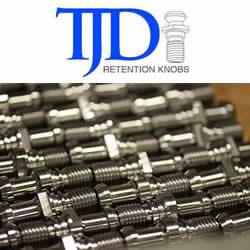Open Faced Angle Sensors for Valve Position Monitoring in Harsh Environments
Utilizing the inductive resonant circuit measuring principle and introducing an innovative open face sensor design for rotary valve sensing, the RI360-DSU opens the door for new potential in valve monitoring on rotary actuators. The RI360-DSU open faced inductive angle sensors deliver analog or discrete outputs and provide flexible mounting options previously not available.
Minneapolis, MN (Aug. 4, 2016) - Turck announces two extensions of their inductive angle sensors for rotary actuators. Both new product offerings provide customers with a rotary valve sensing solution ideally suited for harsh environments; one includes a stainless steel Minifast connector and the other, using a terminal chamber, provides customers with ATEX and IECEx approvals.
Utilizing the inductive resonant circuit measuring principle and introducing an innovative open face sensor design for rotary valve sensing, the RI360-DSU opens the door for new potential in valve monitoring on rotary actuators. The RI360-DSU open faced inductive angle sensors deliver analog or discrete outputs and provide flexible mounting options previously not available.
Turcks RI360-DSU inductive angle sensors are able to monitor quarter turn valves and three-way valves, while also detecting the valve position during cleaning cycles. Additionally, the sensors are capable of detecting the wear of seals, thus saving downtime from seals that are worn from switching cycles. For flexible operation, the sensors are available with switching or analog outputs.
"These products will not only allow for continuous 360 degree contactless position measurement, but now we have an Ex approved solution with the ability to be located within hazardous environments and a stainless steel connector option for use with harsh chemicals," said Marty Cwach, Product Manager, Turck. "This is a product improvement that will allow more versatility to an already proven technology."
Featuring a protection rating of IP67 and a rugged, compact housing design, the RI360-DSU sensors provide a wear-free sensing solution in harsh applications. The sensors provide optimal performance in temperatures ranging from -25° to +75° Celsius (EXI version limited to +70 °C), making them suitable for a wide range of applications, including valve automation, steering position feedback and dancer arm control.
The RI360P1-DSU35TC-ELI-EXI is available with ATEX and IECEx approvals. The RI360P1-DSU35-ELIU5X2-B1150/S1265 is available with a stainless steel Minifast connector.
About Turck
Turck is a pioneer in industrial automation technology, providing customers with a comprehensive line of quality and advanced technology products in a fast, flexible and accurate manner. With more than 4,000 people working in 28 countries, Turck has built global partnerships with customers based on engineering expertise, flexibility and our willingness to take on engineering challenges that others wont. For more information, visit www.turck.com.
Featured Product

